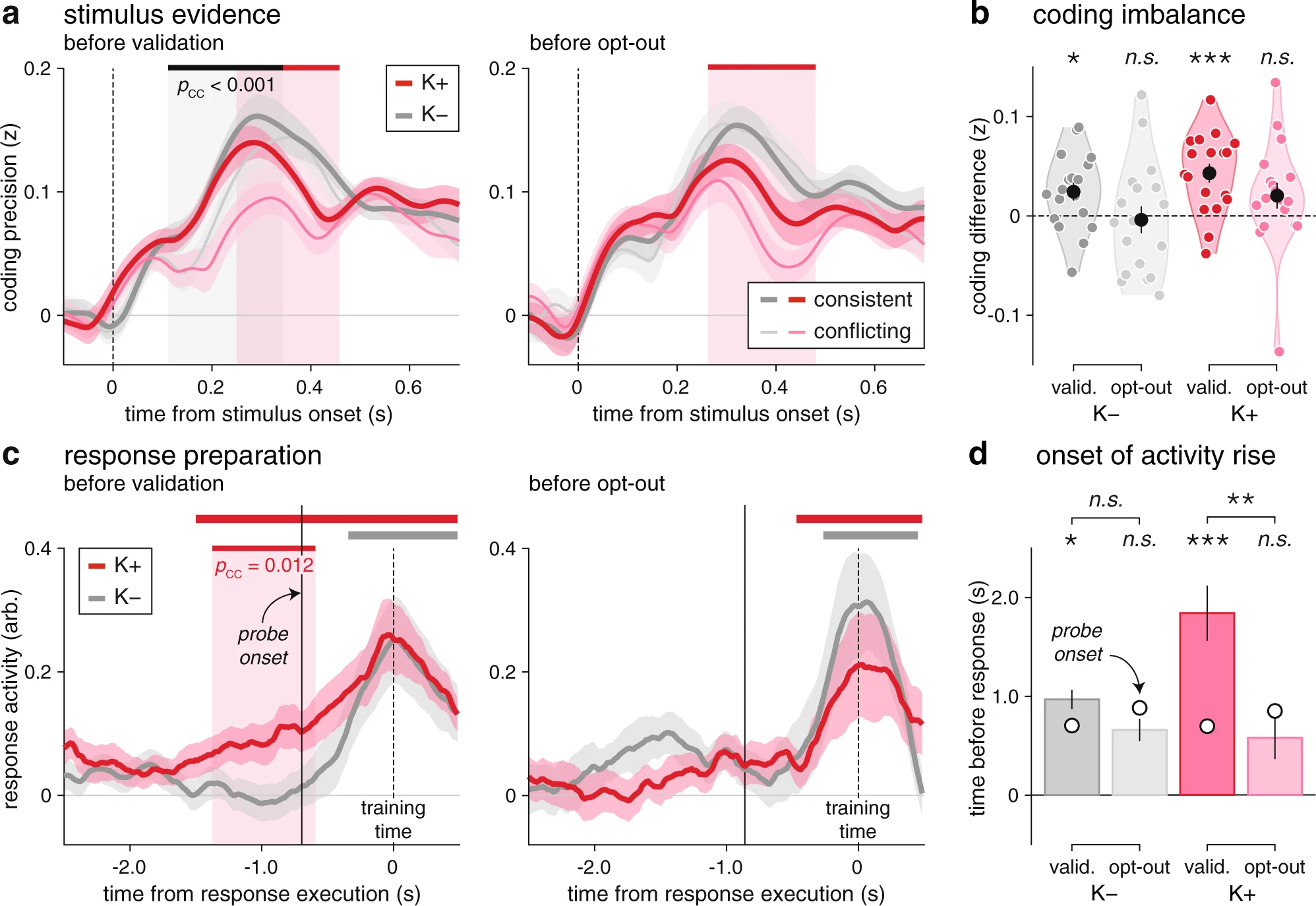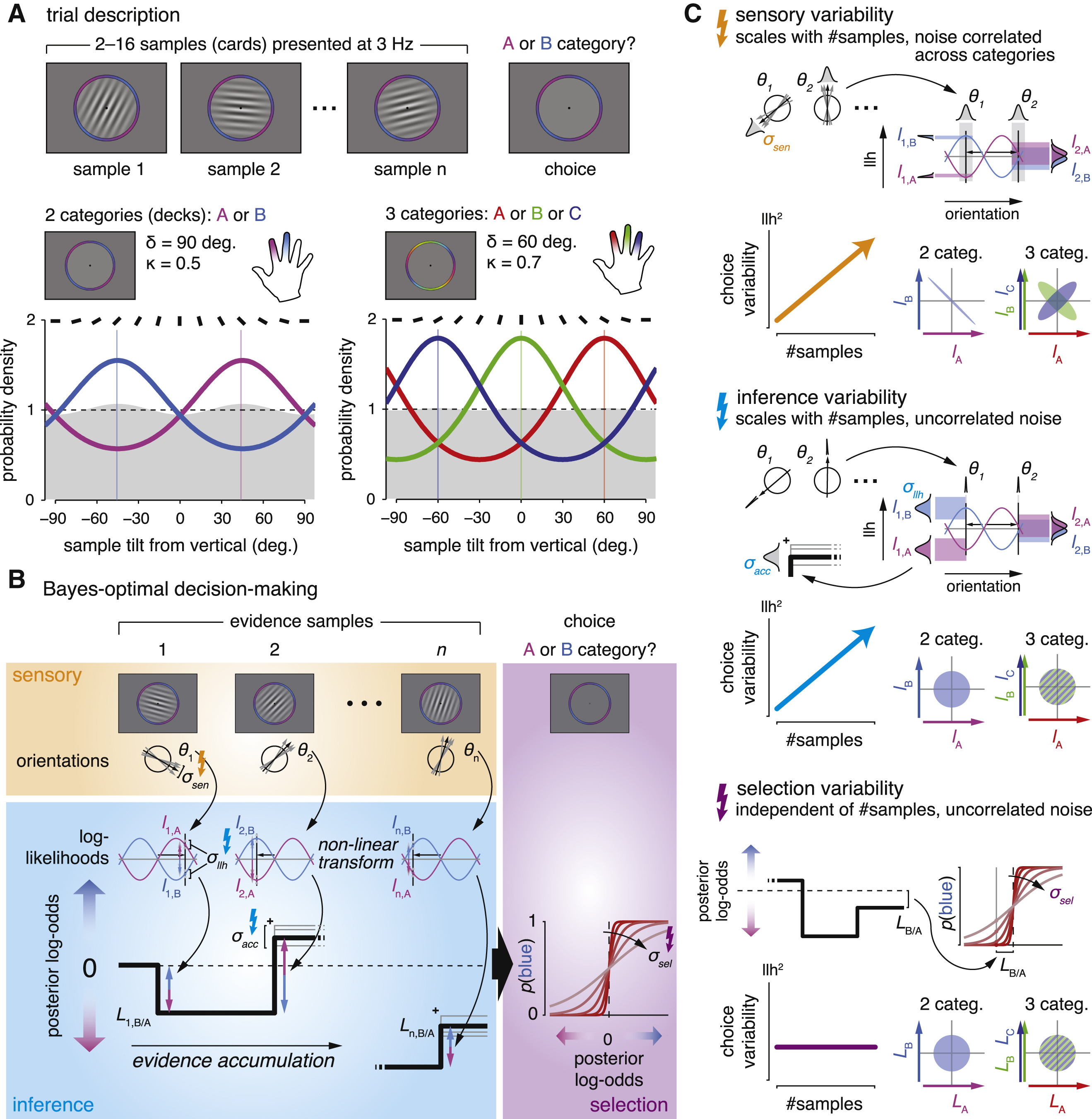Premature commitment to uncertain decisions
Making accurate decisions based on unreliable sensory evidence requires cognitive inference.
Dysfunction of n-methyl-d-aspartate (NMDA) receptors impairs the integration of noisy input in theoretical models of neural circuits,
but whether and how this synaptic alteration impairs human inference and confidence during uncertain decisions remains unknown.
Here we use placebo-controlled infusions of ketamine to characterize the causal effect of human NMDA receptor hypofunction on cognitive inference and its neural correlates.
At the behavioral level, ketamine triggers inference errors and elevated decision uncertainty.
At the neural level, ketamine is associated with imbalanced coding of evidence and premature response preparation in electroencephalographic (EEG) activity.
Through computational modeling of inference and confidence, we propose that this specific pattern of behavioral and neural impairments reflects an early commitment to inaccurate decisions,
which aims at resolving the abnormal uncertainty generated by NMDA receptor hypofunction.

Noisy learning
When learning the value of actions in volatile environments,
humans often make seemingly irrational decisions that fail to maximize expected value.
We reasoned that these 'non-greedy' decisions, instead of reflecting information seeking during choice,
may be caused by computational noise in the learning of action values.
Here using reinforcement learning models of behavior and multimodal neurophysiological data,
we show that the majority of non-greedy decisions stem from this learning noise.
The trial-to-trial variability of sequential learning steps and their impact on
behavior could be predicted both by blood oxygen level-dependent responses to obtained
rewards in the dorsal anterior cingulate cortex and by phasic pupillary dilation,
suggestive of neuromodulatory fluctuations driven by the locus coeruleus–norepinephrine system.
Together, these findings indicate that most behavioral variability, rather than reflecting human exploration, is due to the limited computational precision of reward-guided learning.



